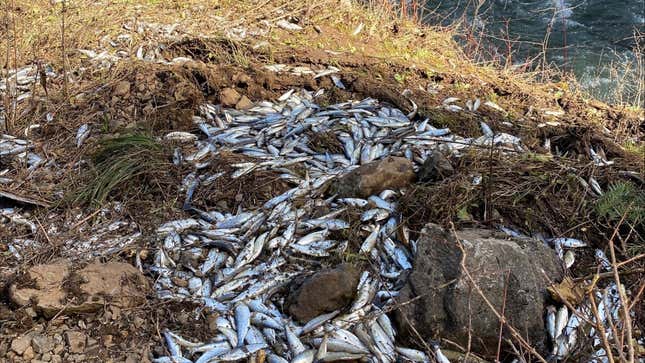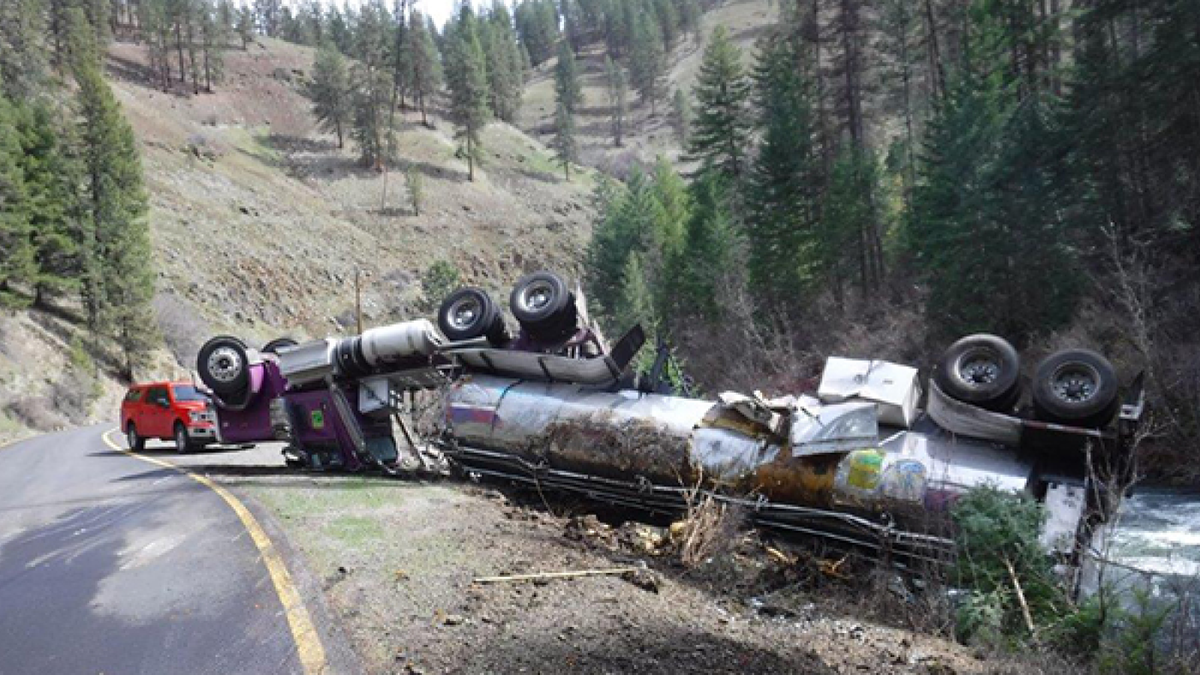When a tanker crashes on the highway, it usually spills its cargo all over the roadway causing backups for miles as traffic holds up during the cleanup. In Oregon, however, one tanker crash spilled its precious cargo into a river, which was actually the only place that could keep its load safe and sound. That’s because the truck was filled with young salmon, which were on their way to be released in a different nearby river.
A fish tanker filled with more than 100,000 young chinook salmon crashed in Oregon last week, reports local news outlet the Baker City Herald. In the crash, the 53-foot truck rolled onto the passenger side, skidded across the pavement and flipped onto its roof after hitting a rocky embankment.
After colliding with the side of the road, the tanker split open, leaking its contents onto a riverbank next to the road. This spilled an estimated 77,000 salmon smolts, the technical term for a fish that’s around two-years-old, into the Lookingglass Creek, which runs alongside the road.

The remaining 25,000 chinook salmon smolts were found dead, either stranded on the river bank or inside the stricken tanker, said the Oregon Department of Fish and Wildlife (ODFW) in a statement. According to the agency:
The smolts lost represent about 20 percent of the total that will be released into the Imnaha River this year. Fishery managers expect to see about 500-900 fewer adult fish returning in 2026 and 2027 due to the loss. The 77,000 fish that made it into Lookingglass Creek will likely return there and produce approximately 350-700 additional adults.
The fish were being transported from the Lookingglass Hatchery in northeast Oregon to the Imnaha River, where they were set to be released to try and bolster fish stocks in the area. The salmon population in the Imnaha is listed as “threatened” by ODFW.
However, the fish instead found a home in the Lookingglass Creek, where expects predict they will return to breed each year, improving fish population in that river instead.
“We are thankful the ODFW employee driving the truck was not seriously injured,” said Andrew Gibbs, ODFW fish hatchery coordinator for Eastern Oregon, in a statement shared by the agency.
“This should not impact our ability to collect future brood stock or maintain full production goals in the future.”

